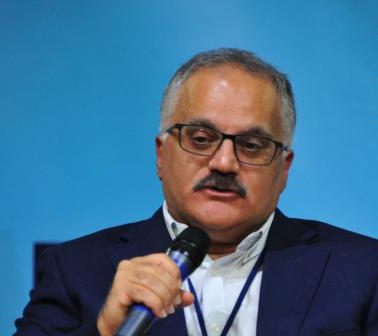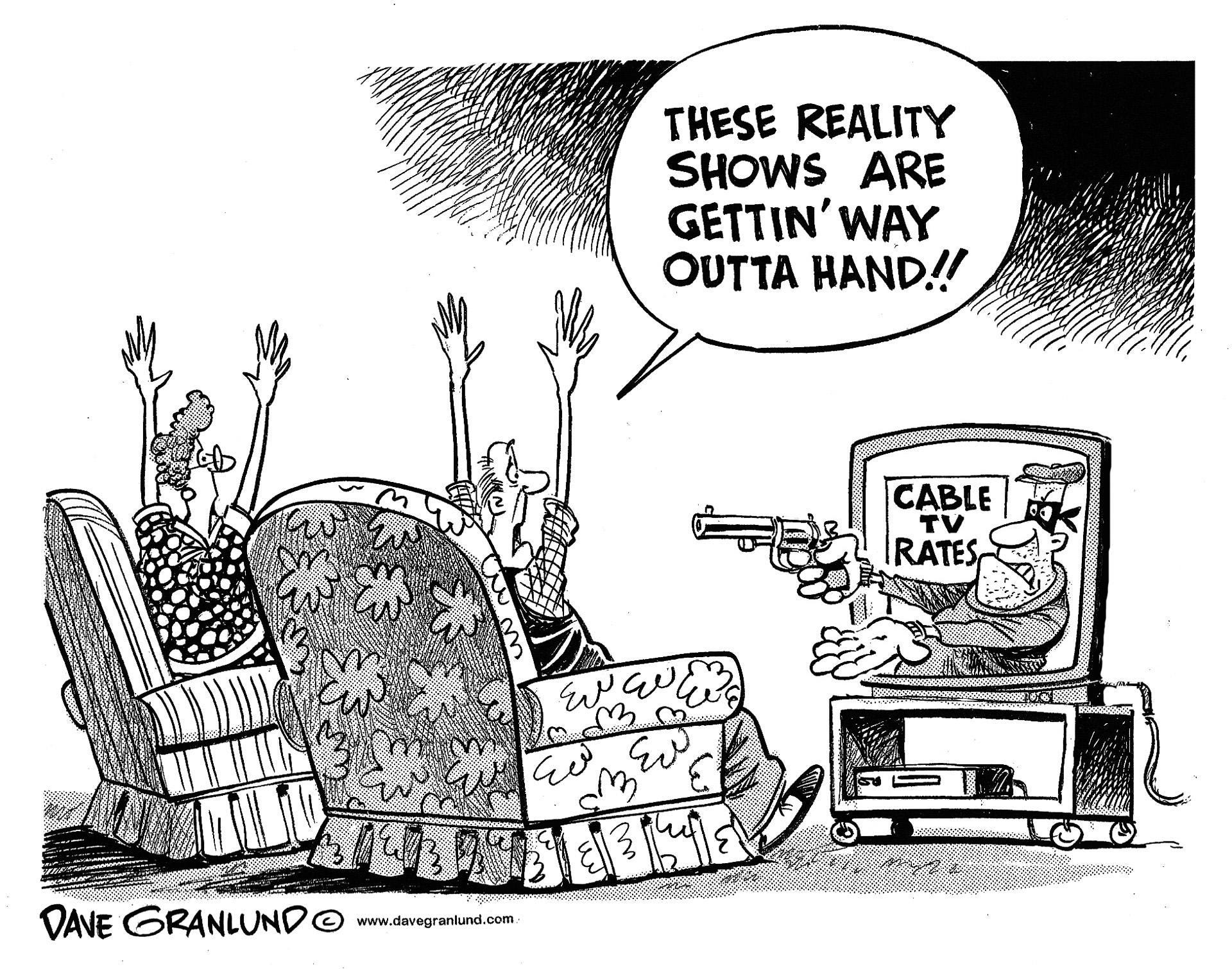Haitham El-Zobaidi: Al Jazeera’s Challenger?

If the Saudis are really serious about creating a rival tv network to Al Jazeera, they will have to do better than Qatar’s flagship. But that aint saying much
If the talk about Saudi Arabia’s intent to launch a major English-language news channel is accurate, there is reason to fear that the planned channel could be just a pretty piece of sparkling crystal of no practical value in the Saudi media showcase.
This does not mean that there is something wrong with the idea. Arab countries suffer from a huge lack of media connections to the West. The West writes about Arabs in its media as it wishes and usually does so with Western bylines. It is not easy for Arab viewpoints on regional or international issues to reach Western or English-speaking audiences. Moreover, the viewpoint of Arab countries concerned with one specific issue or another does not often find its way into Western media.
The need for an Arab media presence in the West is more than necessary. But the proposed formula, that is, a major English-speaking TV satellite channel, is often ill-conceived and this is so for a number of reasons.
If audiences in the Arab world still watch satellite news continuously, this is no longer the case in the English-speaking world. International news channels such as CNN, Sky News and BBC World News remain relevant, but they are not the permanent TV fixtures they used to be. The 24-hour TV news-format is still alive, but its content is watched intermittently and often not in live broadcasts. Audiences look at video news clips or analytical segments that are posted on social media platforms.
The Arab world still watches Arabic news channels, such as Al Jazeera, Al Arabiya, Sky News Arabia and others. It is also true however that the ratings of these channels have generally declined since the “Arab spring” while local channels attracted more viewers. Watershed events still impose themselves on the agenda of major Arab news channels. An Arab viewer is attentive to war in Gaza or the military showdown in Sudan. The TV coverage of such events on Arabic satellite channels draws viewers as long as the crisis endures. But this value diminishes when the crisis is over or if the audience is no longer interested. The Gaza and Khartoum developments are still on the radar screen these days. But renewed fighting in Yemen is no further of interest.

Western audiences are unlike those in the Arab world. Developments on the ground attract the Arab viewers. But Western audiences will not be concerned with what is happening in the Arab region unless there are disasters or major changes involved.
When such developments occur, these audiences will prefer to watch traditional Western news channels, rather than other sources. The Russia Today TV channel may arouse the curiosity of Western viewers, if they want to occasionally discover a different point of view. But the channel will not be considered a reliable news source. Credibility is an important issue in the West. Also, Western viewers may not know how to access Arab satellite broadcasts. Without a particular interest in a specific Arab country, it is hard to imagine the average Western viewer scanning through the list of channels and subsequently reprogramming his TV receiver accordingly, or to expect this viewer to search YouTube in order to access the live broadcasts of this or that channel.
Even before streaming platforms took over the world of broadcast television and displaced traditional networks, foreign English-language satellite channels did not enjoy a major slice of Western viewership. The odds were for instance against the English-language Iranian Press TV from the start. It is an ideological channel that serves a goal that is no different from that served by Russia Today in English, which promotes the Russian President Vladimir Putin’s national project.
But the most resounding case of failure has had nothing to do with odds or ideology. It is that of Al Jazeera English.
Nobody knows exactly how much Qatar has spent on its Al Jazeera English project. Most certainly, the amount was huge and was spent over many years. However, all that outlay did not make the project a success. The quality of the content provided is not the issue. Only viewers can assess that. However, indicators show the reach of the channel has remained very limited. The number of viewers has been only in the tens of thousands. By all accounts, these numbers were disappointing, because they did not even include Arab and English-speaking Muslims among second generation immigrants. If Al Jazeera English could not attract these audiences, viewers who are supposed to be concerned by the causes promoted by Qatar, the Muslim Brotherhood and some of what remained of the Arab left, how could it also draw Western audiences?
The failure to attract English-speaking viewers is one aspect of the weak performance of Al Jazeera English. The other aspect has been the inability of the channel to defend Qatar itself in the face of the massive onslaught of criticism it faced for years as part of the problems associated with Doha’s hosting of the 2022 World Cup. The launch of Al Jazeera English years before the FIFA tournament may have been part of Qatar’s public relations master-plan for the promotion of the country’s reputation ahead of the Qatar World Cup. Perhaps the idea was to make sure Westerners grow accustomed to watching Al Jazeera English and also to set a PR campaign in motion in time for the soccer World Cup opening. What happened, however, was clearly the opposite. Al Jazeera English could not even douse the fire of the Western media attacks. If Al Jazeera English had been as successful as it was supposed to be in making inroads into the minds of Westerners, events would have worked out differently. No one would have heard of such issues as the alleged bribing of European MPs so that they could help Qatar deal with accusations of abusing foreign workers, intimidating homosexuals or banning alcohol in Qatar’s stadiums.
In all fairness, neither Al Jazeera English nor any other channel could have succeeded in such a task. Some cases are impossible to defend. It became clear that a media project like Al Jazeera English cannot not spark interest among Western public opinion, let alone create a support-base, by virtue of magic or money. The Qatari decision to reduce the channel’s global representation and only keeping a central broadcasting station in Doha, was unsurprising considering the channel’s failure to achieve its initial goals.
vIn recent years the calibre of on air talent has gone down a notch or two at Al Jazeera. It’s as though Qatar’s appetite for international media has waned. But shouldn’t that be a lesson for other countries in the region to note?Al Jazeera’s experience is there for Saudi Arabia to see as it plans a similar project. Perhaps there is a justification for the launch of a media project with a reasonable budget, aimed at reaching interested Western viewers. The channel could be the source of ideas, programmes and news bulletins that are broadcast 24 hours a day. It should not be a channel with an astronomical budget, exaggerated expectations nor hyper-inflated production goals. Satellite broadcasting or TV streaming must give the impression that their programmes, after they are segmented and posted on social media networks, are produced by a professional TV channel and are not videos concocted in a home basement or garage.
Thinking about the content is important, but this should be without the temptation of extravagance and without the need to boast that Saudi Arabia has just launched the “mother of all English-language satellite channels.”
The content directed at Western audiences should be practical and aimed at influencing a world that is at times hostile to Saudi Arabia, as illustrated by the personal attacks on the Saudi leadership and the demonisation of its decisions. This has been especially the case when such decisions aim to serve Saudi national interests and fail to accommodate the West’s demands for the types of concessions and privileges to which it has grown accustomed.
The Saudi media showcase can rightfully include pieces of shiny crystal. There is nothing wrong however if such pieces of crystal serve a purpose beside being mere a display of decorative objects without any tangible benefit.
The pile of shattered crystal in the lap of Qatari media is not just a bunch of broken glass. It is also a lesson for all to ponder.
Dr Haitham El-Zobaidi is the executive editor of Al Arab Publishing Group.
Want to chase the pulse of North Africa?
Subscribe to receive our FREE weekly PDF magazine












